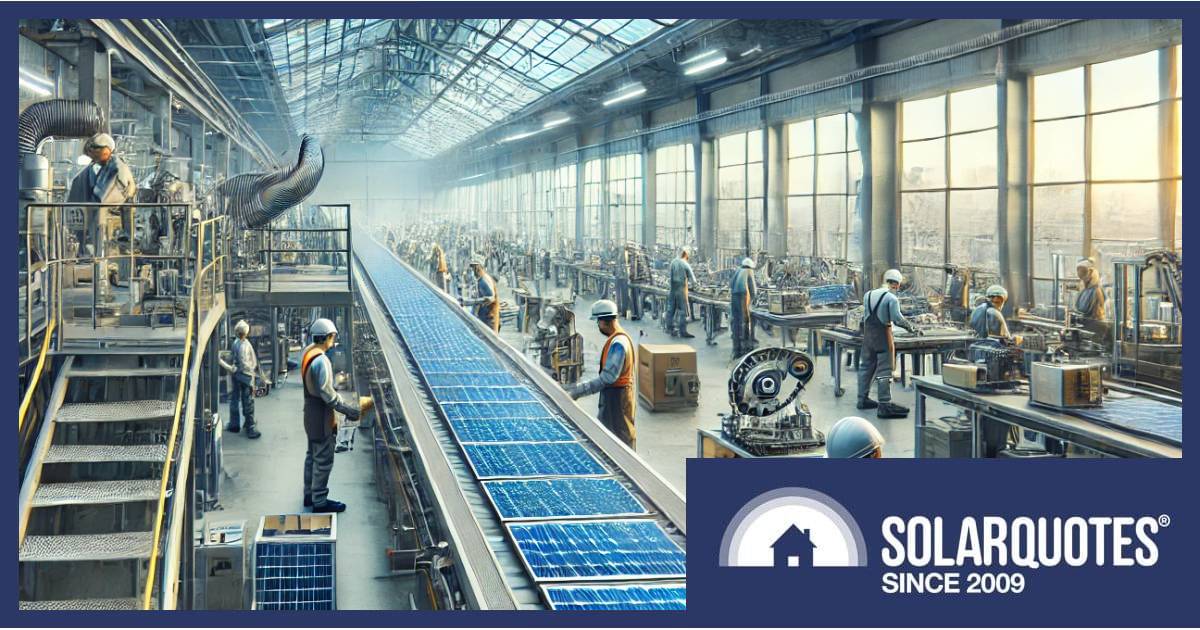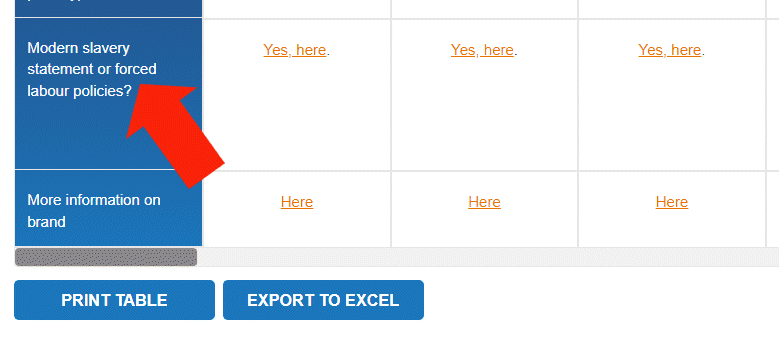
SolarQuotes recommends certain brands across a range of solar components. Criteria relating to quality, performance and company stability aside, how do we approach the thorny, complex issues of modern slavery and forced labour?
Up until a couple of years ago, among the criteria for a manufacturer to be included on our recommended brand charts were:
- Having an Australian office for warranty support.
- Easily accessible phone/email customer and technical support.
- A good reputation within the industry.
- No Clean Energy Council (CEC) flags for major violations.
Modern Slavery Rears Its Ugly Head – SQ Responds
Modern slavery in solar and related sectors was thrust into the spotlight a few years back. It was a wakeup call for everyone, including SolarQuotes.
In 2022, SolarQuotes set about assessing risks of modern slavery within the company’s business and supply chain. You can view the resulting modern slavery/forced labour policy here.
But we also took this important exercise one step further by seeking related information from brands we currently recommend and/or list on our very popular comparison tables for solar panels, batteries, inverters, PV diverters and EV chargers.
We asked each manufacturer if they were required to report under the Australian Government’s Modern Slavery Act (Cth) 2018, and if so, to point us to a copy of their modern slavery statement.
If they weren’t required to report, we asked if the organisation had a policy or policies in place to deal with modern slavery and forced labour – and for the details. If they didn’t have anything in place at that point, we requested information about what the organisation was doing, or planned to do, to manage these risks.
From that first round of contacts, we were pleased by the number of companies that promptly responded with information. But there were some that chose to ignore the request – or perhaps the request didn’t reach the right party, or became caught up in the tubes of the interwebs. So, we tried again. There were also a couple of cases where the representative of the company we were communicating with didn’t know what the heck we were asking about.
Given dozens of brands are listed on our comparison tables, the process took over a month to run through and the results were then added to each table in a row like so, with links to each policy where available:
2024 Update
SolarQuotes decided to include an annual review in our policy and ran through the process again recently to request updates from each company.
If a recommended brand failed to respond or it became clear they didn’t have a policy – or what was considered a sub-standard one – they were removed from the recommended brands charts. Those companies will be added back if a suitable policy materialises.
For the comparison tables, status is again noted in the modern slavery/forced labour row:
Note that just because a brand is listed on a comparison table, it doesn’t necessarily indicate it is recommended by SolarQuotes. You can view currently SQ-recommended solar panel, inverter, battery and charger brands here.
IMPORTANT: While having a modern slavery/forced labour policy is one thing, a company actually putting it into practice is quite another.
SolarQuotes doesn’t have the resources required to thoroughly investigate each set of commitments to ensure they have been implemented; which would include visits to factories in faraway lands. But at least we can indicate if there is a written policy with some substance for each manufacturer; helping to better inform Australians concerned about such issues as part of their purchase decision process.


 RSS - Posts
RSS - Posts



Great to see SQ pushing this. I definitely had this as a consideration on my recent solar and battery purchase, credit to the salesperson who Gabe me the original information and helped further me awareness of the issue
With the exception of Growatt, Alpha-ESS, Eguana Technologies, Sofar Solar, VARTA, and possibly LAVO and SigenEnergy, are there any solar, inverter, or battery companies that don’t have a statement or policy available?
And the latter two companies are listed as TBD rather than failed to respond\not provided details.
As SQ notes you don’t have the resources to rigorously investigate this, but even factory visits wouldn’t be enough. Sure the factory assembling the parts may not use slave labour, but what about the factories providing the parts used by the factory assembling the parts? And what about the mines supplying the materials used to create the parts used to assemble the product? With long supply chains it’s plausible that slave labour occurs so far upstream that it’s not noticed even if looked for.
Consider … oh wait. I was going to reference Australia’s Tindo but 404ed. Apparently they’ve deleted or moved their policy!!! What I was going to suggest was even if they monitor the supply chain providing their parts, do they monitor the supply chain involved in creating the parts they procure? How far can one monitor for slavery?
Perhaps it is simply easier and safer, albeit more expensive, for customers to try to avoid products produced, in whole or in part, by countries that permit slave labour?
Thanks Solar Quotes for having a holistic view on sustainability and ethical business practices! Having such principles and values is essential for creating real change in the world.